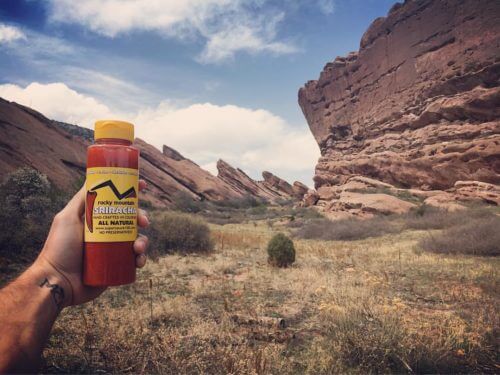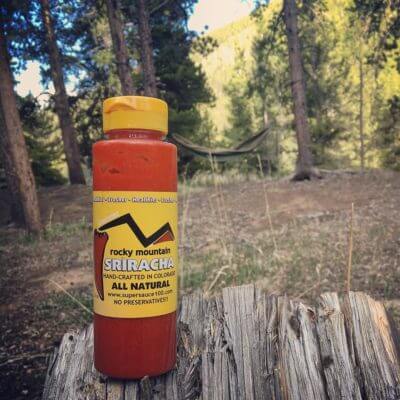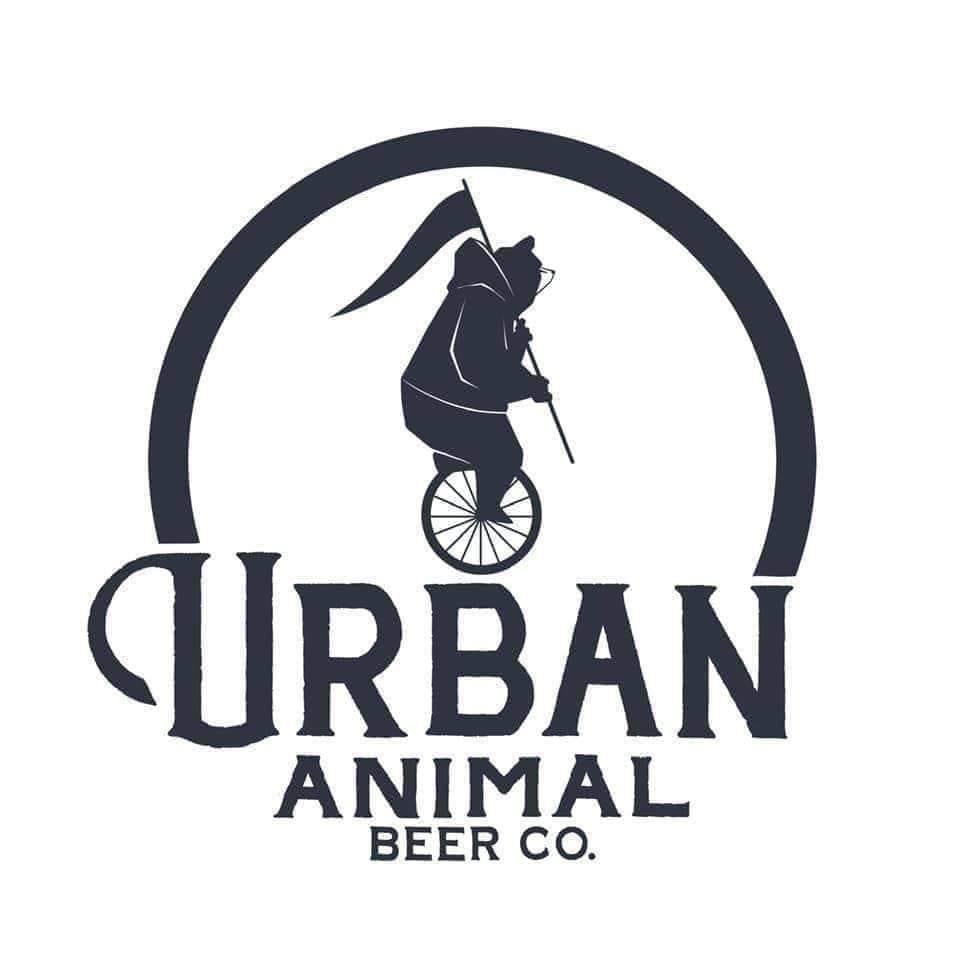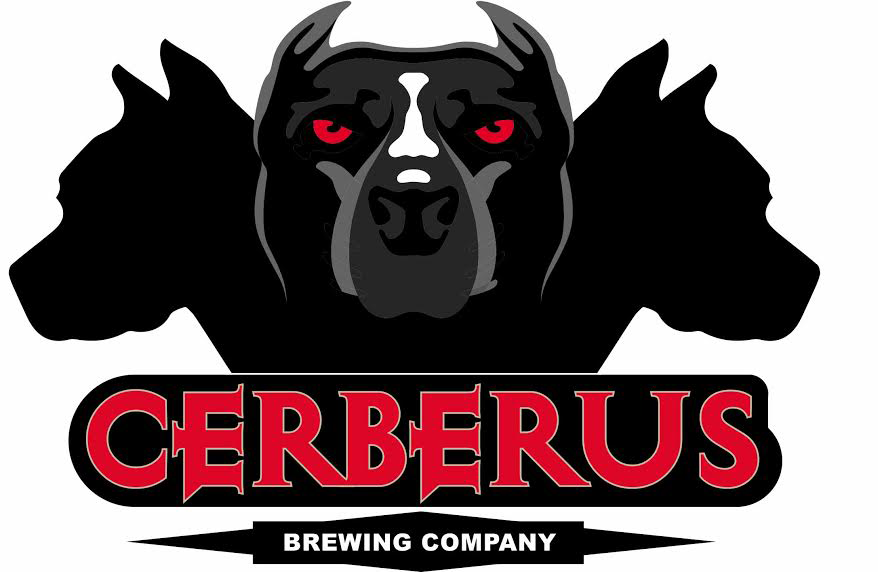For the better part of a decade consumers have been obsessing over Sriracha, the most recognizable bottle adorned with a rooster logo, cozying up to salt and pepper shakers on tables everywhere. The fiery, red paste that was once named by Bon Appetit Magazine as “ingredient of the year” is also an interesting condiment since the brand itself transcends a singular company. David Tran, founder of Huy Fong Foods, didn’t trademark the product spurring a wave of variants to come after his signature sauce.
Rocky Mountain Sriracha is an example that resides on the shelves at Alfalfa’s Market in Boulder, Colorado, and is available at The Airplane Restaurant in Colorado Springs, Colorado. But what makes it different, similar or better than competing brands? RMFR asks Chris Becker, founder/president of Rocky Mountain Sriracha, to discuss the specifics of their product and why he made the decision to create his own version of the beloved Asian hot sauce.
After an attempt by Becker to run a Denver pizza joint in 2005 with sriracha baked into the crust, mismanagement led to the venture closing but didn’t derail his interest in the spicy, pop-culture craze. Becker began to research different recipes, discovering that fermentation is the only binding factor amongst all existing options.
“I refused to wait,” says Becker. Choosing to just blend the peppers fresh and opt for a quick flash cook method to finish. The result was a common tasting note, “fresh.”

The FDA requires sriracha companies to ferment their product for 30 days but then it has the perpencity to sit in barrels for upwards of 18 months before it goes to the line and is bottled. Even though Rocky Mountain Sriracha finds an alternative approach Becker endorses that it’s not necessary to refrigerate their sauce.
Rocky Mountain Sriracha implements other variables in their non-GMO, gluten-free recipe choosing to use Fresno peppers to add an interesting textural difference and a heightened sweetness. The product extends into the health food realm with organic, raw Bragg’s Apple Cider Vinegar and sea salt from New Zealand, which offers a lower glycemic index and decreases sodium levels.
Rocky Mountain Sriracha also utilizes nearby purveyors with organic garlic from Hobbs Family Farm in Pueblo, Colorado, agave nectar from Madhava Sweeteners in Longmont, Colorado, and Eldorado Springs water.
“We’re trying to use as many local products as possible,” says Becker. “And it’s all extremely healthy.”
To launch Rocky Mountain Sriracha, Becker chose to share the concept with four business students at Colorado Mesa University in Grand Junction, Colorado. The group agreed to evaluate and grow the business model for their senior project. They solidified financial backing through a Kickstarter campaign, raising $10,000, and earning each of them equity in the company. One student, Patrick Wall, couldn’t let go of the start-up idea and now serves as vice president of Rocky Mountain Sriracha.
The brand manages to streamline their production and consistency with manufacturing assistance from Redlaw Co-Packers, a partner company of Redlaw Sauce Co., which produces a line of bbq and hot sauces in Golden, Colorado. They hope to continue to integrate into more area restaurants and collaborate with other health-conscious companies. Currently, Love the Wild, based in Boulder, Colorado, adds the Sriracha to their elevated line of ready-made, frozen fish entrees.
RMFR received a bottle which we use generously and have happily drained half of in the span of just a few months. It offers a bright flavor that we use on eggs, to kick up a soup recipe and definitely in take-out pho. Plus, we dig the incorporation of beneficial, local ingredients.
“It’s something so unique to have on the table, as far as a Colorado product,” says Becker. “We’ve found our niche as the only fresh, natural Sriracha.”
*All images courtesy of Rocky Mountain Sriracha.







